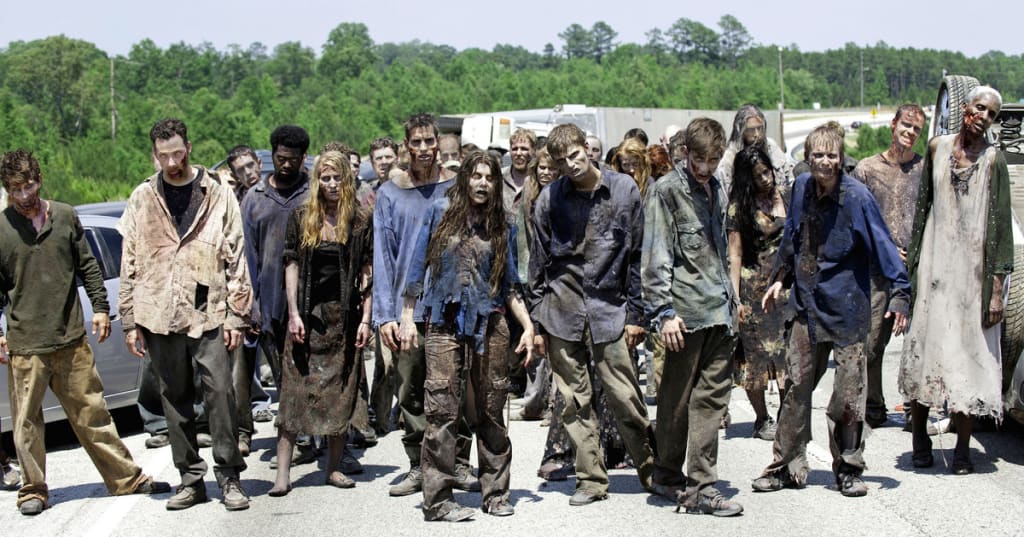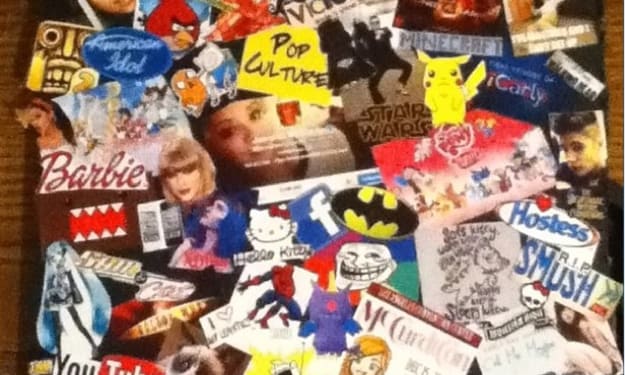The Zombie Apocalypse: A Fictional Frenzy with a Dash of Scientific Speculation
The Zombie Apocalypse: Unraveling the Science Behind Fiction's Undead Frenzy

The zombie apocalypse has captured the imagination of people worldwide through countless movies, TV shows, and books. It tantalizes our primal fears of the unknown and the undead, leading many to wonder if such a cataclysmic event could ever be a reality. While it's crucial to remember that zombies as depicted in popular culture remain firmly in the realm of fiction, exploring the scientific possibilities behind such an outbreak can be an intriguing thought experiment.
Theoretical Scientific Possibilities:
1. Viral or Bacterial Mutation:
As mentioned earlier, there are viruses that cause behavioral changes in animals, leading to aggressive and even cannibalistic behavior. While it is theoretically possible for a virus or bacteria to mutate in a way that reanimates the dead, it is essential to differentiate between a virus that could trigger aggression and one that could bring back the dead as flesh-eating zombies. The chances of such a mutation are exceptionally remote and have not been observed in nature.
2. Parasitic Brain Control:
Parasites can indeed manipulate the behavior of their hosts, but again, the idea of a parasite taking over a human's brain to create a zombie-like state remains speculative fiction. Examples like the Toxoplasma gondii parasite affecting rodent behavior are intriguing but vastly different from reanimating deceased humans into zombies. The complexity of human brain function makes this scenario improbable.
Transmission and Spread:
Even if a virus or parasite could cause zombie-like behavior in humans, the spread of such a phenomenon would be highly limited. Infectious agents typically rely on living hosts to propagate, making transmission from corpse to corpse difficult. Furthermore, the decomposition of corpses would render them nonviable as hosts relatively quickly, limiting the outbreak to a confined area.
Survival Tips for Fictional Scenarios:
1. Securing a Safe Haven:
In the hypothetical event of a zombie apocalypse, finding a secure location would be paramount. Seek shelter in well-fortified buildings, remote areas, or defensible structures like underground bunkers to minimize exposure to potential threats.
2. Gathering Supplies:
Preparedness is crucial. Stock up on food, water, medical supplies, and tools necessary for self-defense. Maintaining a well-stocked survival kit can prove invaluable during any real-life emergency.
3. Avoiding Zombies:
In fictional scenarios, avoiding direct contact with zombies is essential to stay uninfected. Remember, they are fictitious, but the idea of avoiding dangerous situations is relevant in real-life emergency preparedness.
4. Collaboration and Cooperation:
Working with other survivors can increase the odds of survival. In a fictional apocalypse, forming a trustworthy group allows individuals to pool skills and resources, creating a stronger and more adaptable community.
Conclusion:
The zombie apocalypse is a captivating fictional concept that sparks our imagination and entertains us through various media. While there are a few theoretical scientific possibilities that could lead to zombie-like behavior in animals or humans, the chances of an actual zombie apocalypse occurring are exceedingly slim.
The idea of a zombie outbreak serves as a reminder of the importance of emergency preparedness. Planning for natural disasters, pandemics, or other unforeseen events is a practical way to ensure the safety and well-being of ourselves and our communities.
While the undead may remain confined to the world of fiction, the lessons learned from contemplating a zombie apocalypse can be valuable in appreciating the importance of preparedness, resourcefulness, and the strength that comes from working together in times of crisis. So, as we enjoy the fictional excitement of zombie tales, let us not forget to be prepared for the real-life challenges that may come our way.
About the Creator
Erik Velazco
passionate about storytelling and eager to share unique perspectives, ideas, and imagination with the world.
Enjoyed the story? Support the Creator.
Subscribe for free to receive all their stories in your feed. You could also pledge your support or give them a one-off tip, letting them know you appreciate their work.






Comments (2)
I'm so grateful to have found https://www.cp-investigation.com when I was scammed by this fraudulent broker. They provided me with the support and resources I needed to recover my lost funds, and they did it quickly and efficiently. The customer service was top-notch, and they gave me the assurance that my money was in safe hands. If you ever find yourself in a similar situation, I highly recommend reaching out to cp-investigation as they are trustworthy and reliable partners.
Hello, AI is permitted on Vocal. It is a Vocal policy that content created with AI is identified as such at the start of the story/article. Your article/story has many hallmarks of AI-assisted/generated content. You can find the details of the Vocal policy here: https://vocal.media/resources/an-update-from-vocal-on-ai-generated-content, Please amend your piece to be in compliance. If you are not a Vocal+ member you will need to contact Vocal here ([email protected]) and ask them to edit your story/article/poem for you. If you don’t correct this the content may be removed by Vocal and/or you may be deleted from the platform.